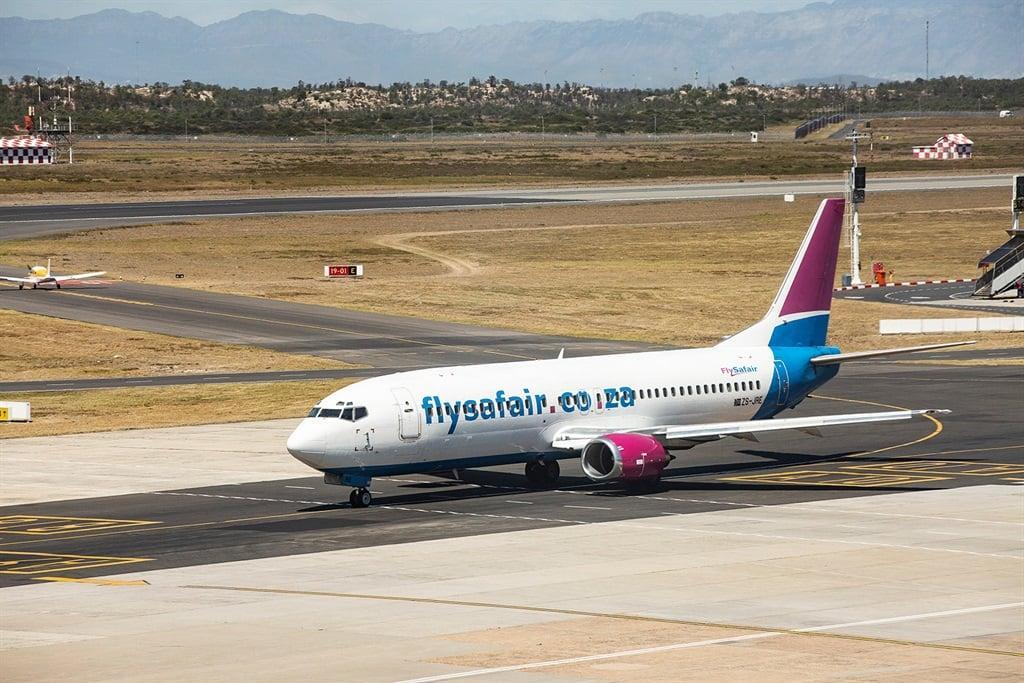Africa-Press – South-Africa. FlySafair has disputed claims that one of its aircraft was forced to do an “emergency landing” after a technical issue was registered with one of the engines.
Spokesperson Kirby Gordon said the aircraft only made a “priority landing” and that “no full emergency” was declared.
He said the landing was made after the engine registered a “slightly higher than usual” vibration.
“On the descent into Johannesburg, the vibration alert sounded, and the captain asked for priority landing. They did not declare a full emergency,” Gordon said.
“After getting this alert, the pilot asked for priority clearance to land the aircraft, alerting the tower to the issue they were experiencing. No full emergency was declared, but air traffic control gave them priority to land and mobilised the ground response teams, including the fire teams, which is standard practice whenever a priority landing is requested.
“There was never an issue with the actual engine; the alert that crew got was the slightly higher vibration alert which ended up being a false sensor indication.”
Flight FA299 was flying from Cape Town to Johannesburg on Monday. It had 148 passengers on board.
A passenger, who asked to remain anonymous, told Netwerk24 that about half an hour before they landed, the cabin crew informed them, “without giving any reasons”, that an emergency landing would be carried out.
The man told the publication that the flight was also delayed.
The passenger said he feared for his life and thought they would die. He added that tensions in the plane had been high.
But FlySafair has since disputed this. Gordon said the teams were trained in these processes and had checklists and strict, well-rehearsed safety protocols.
He said:
“Because there is no immediate threat, they have the opportunity to work through a full briefing which is a lot like the standard safety briefing but includes emphasis on the brace position and a refresher on the emergency exit opening for those seated near the exits.
“It is a conservative precautionary measure to ensure that everyone is well versed in what to do if something does go wrong, but it’s only because there is no immediate threat that the crew has the luxury of time to do this prep. In a real emergency situation, things would be different.”
Gordon said no one had been injured, the aircraft had landed on time, and that the landing was “very normal”.
“Even though they had prepared, the crew never called for the brace position, as there was no requirement for it, and the landing was said actually to be quite soft.
“The engine was obviously thoroughly tested, and the teams replaced a sensor on the engine that measures the vibrations, and it passed all following inspections.”
For More News And Analysis About South-Africa Follow Africa-Press






